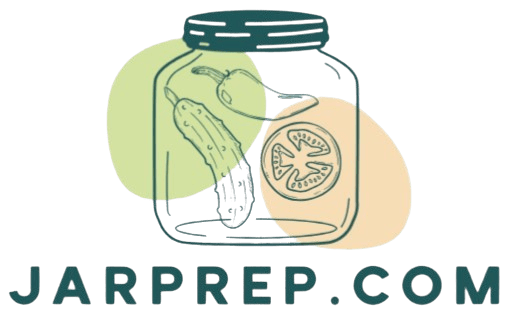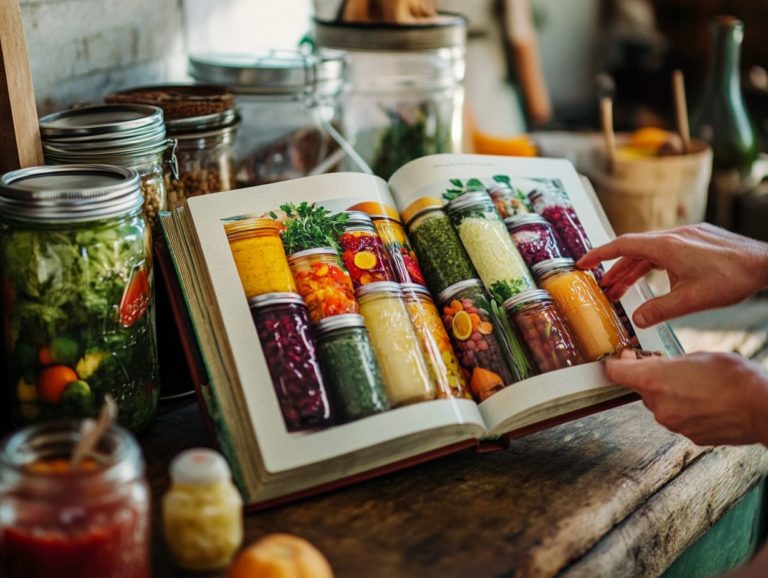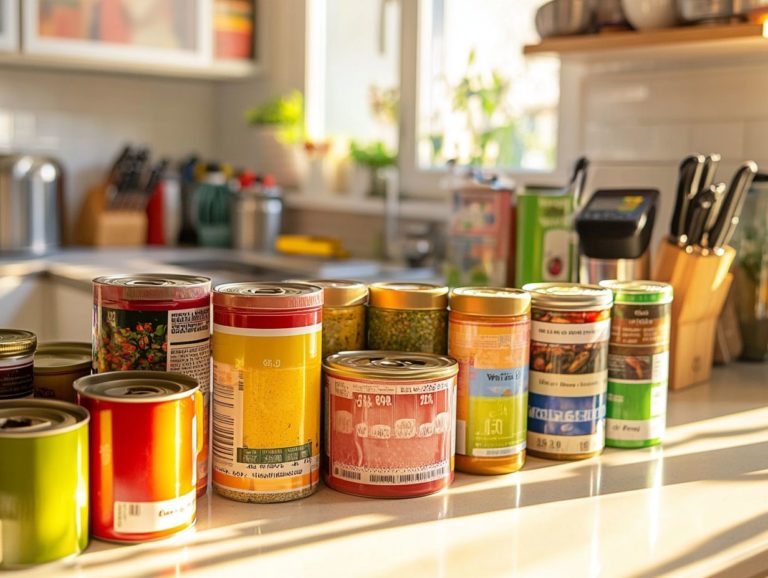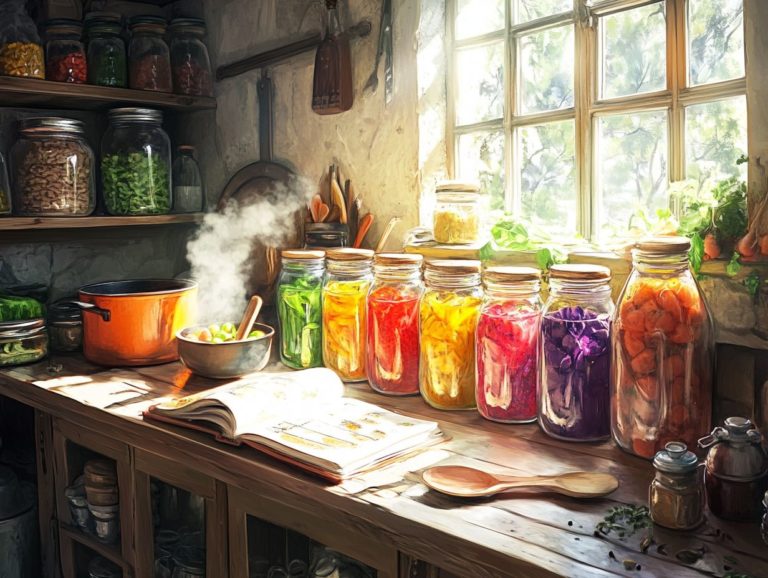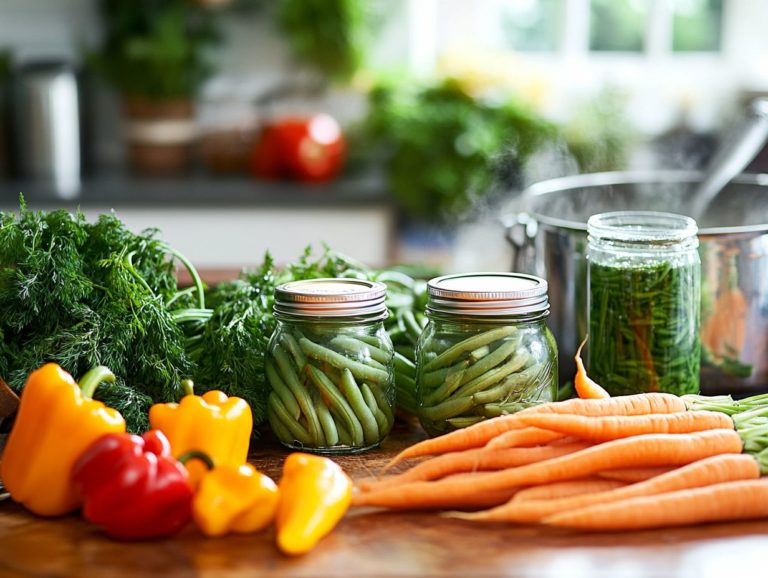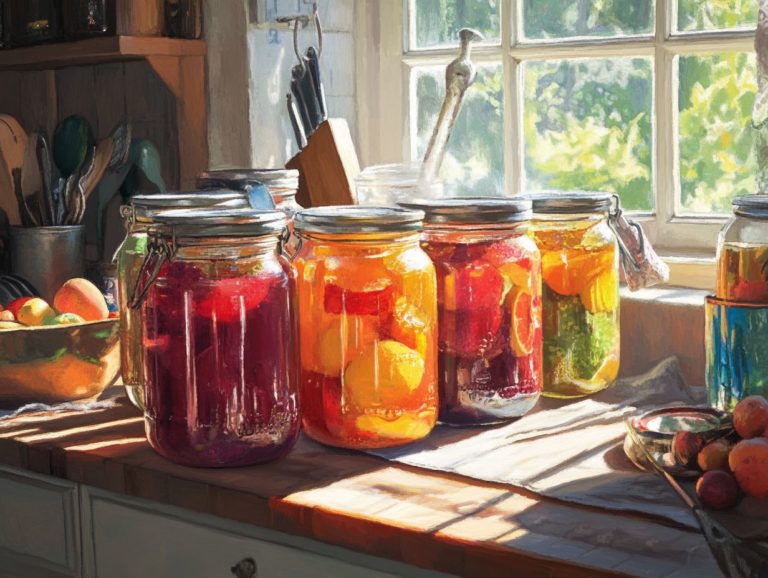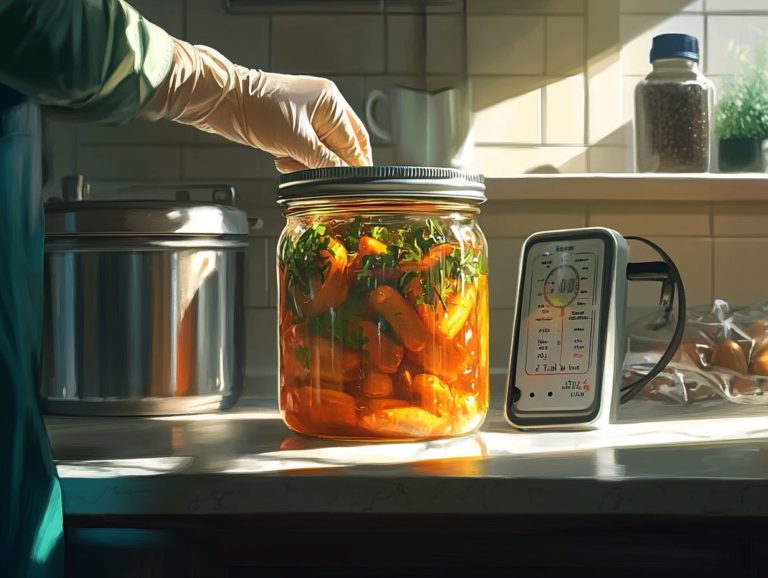What is the Shelf Life of Canned Goods?
Understanding the shelf life of canned goods is crucial for anyone who wants to maximize their pantry staples. This article delves into the concept of shelf life, exploring the factors that influence it and providing typical timeframes for various canned foods.
Discover essential tips that will keep your canned goods fresh and safe! Learn how to identify signs of spoilage and effective methods to extend shelf life. By following these insights, you can ensure that your canned goods remain fresh and safe for an extended period.
Contents
- Key Takeaways:
- Understanding Shelf Life
- Shelf Life of Canned Goods
- How to Properly Store Canned Goods
- Signs of Spoiled Canned Goods
- Extending Shelf Life of Canned Goods
- Frequently Asked Questions
- How long can canned goods last?
- Do canned goods ever expire?
- What factors affect the shelf life of canned goods?
- How can I extend the shelf life of canned goods?
- What are some signs that canned goods have spoiled?
Key Takeaways:
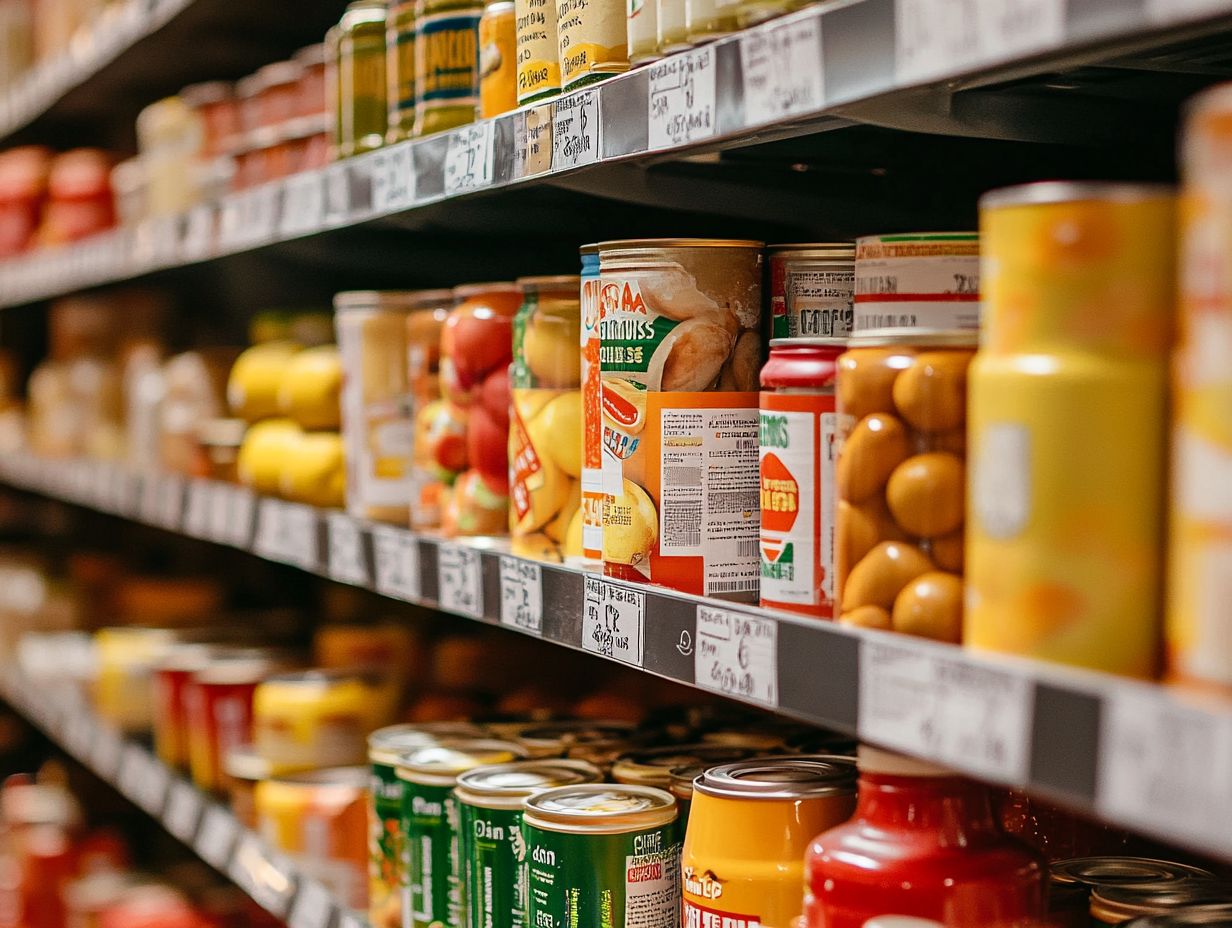
- Canned goods have a shelf life, which is the amount of time they can be safely consumed. Factors such as storage conditions and food type can affect this timeframe.
- The typical shelf life of canned goods varies depending on the type of food. For example, high-acid foods, like canned tomatoes, generally have a shorter shelf life than low-acid foods, such as canned beans.
- Properly storing canned goods is crucial for maximizing their shelf life. This includes keeping them in a cool, dry place and checking for signs of spoilage before consuming.
Understanding Shelf Life
Understanding the shelf life of canned goods is essential for ensuring food safety and preserving nutritional value. It helps you make informed decisions about meal planning, particularly when it comes to budget-friendly options.
The shelf life indicates how long these products can be stored while maintaining their quality and safety for consumption. Various factors influence this duration, including the type of canned food, storage conditions, and the expiration dates provided by manufacturers.
By familiarizing yourself with these aspects, you can make more informed choices about food preservation and minimize the risks of spoilage.
Definition and Factors Affecting It
The shelf life of canned goods is all about how long they can sit on your pantry shelf while still retaining their quality, safety, and nutritional content.
This duration can vary widely, influenced by several key factors. One of the most important factors is the acidity level of the food. For instance, items with higher acidity, like tomatoes or fruit, generally have a shorter shelf life than low-acid foods such as meats or vegetables.
The type of packaging is also important in protecting these products from light, air, and moisture, all of which can lead to spoilage. Storage conditions play a significant role too; keeping your canned goods in a cool, dark place can greatly extend their usability.
Always keep an eye out for signs of expiration, like any damage to the can, changes in color, or unpleasant odors. This ensures that what you consume is safe and of high quality.
Shelf Life of Canned Goods
The shelf life of canned goods varies greatly depending on the type of food and its processing methods. Typically, you can expect most canned products whether it’s vegetables, meat, or fruits to last anywhere from 1 to 5 years.
So, when you’re stocking up, remember that those timeframes can help you determine which items to prioritize for longevity.
Typical Timeframes for Different Foods
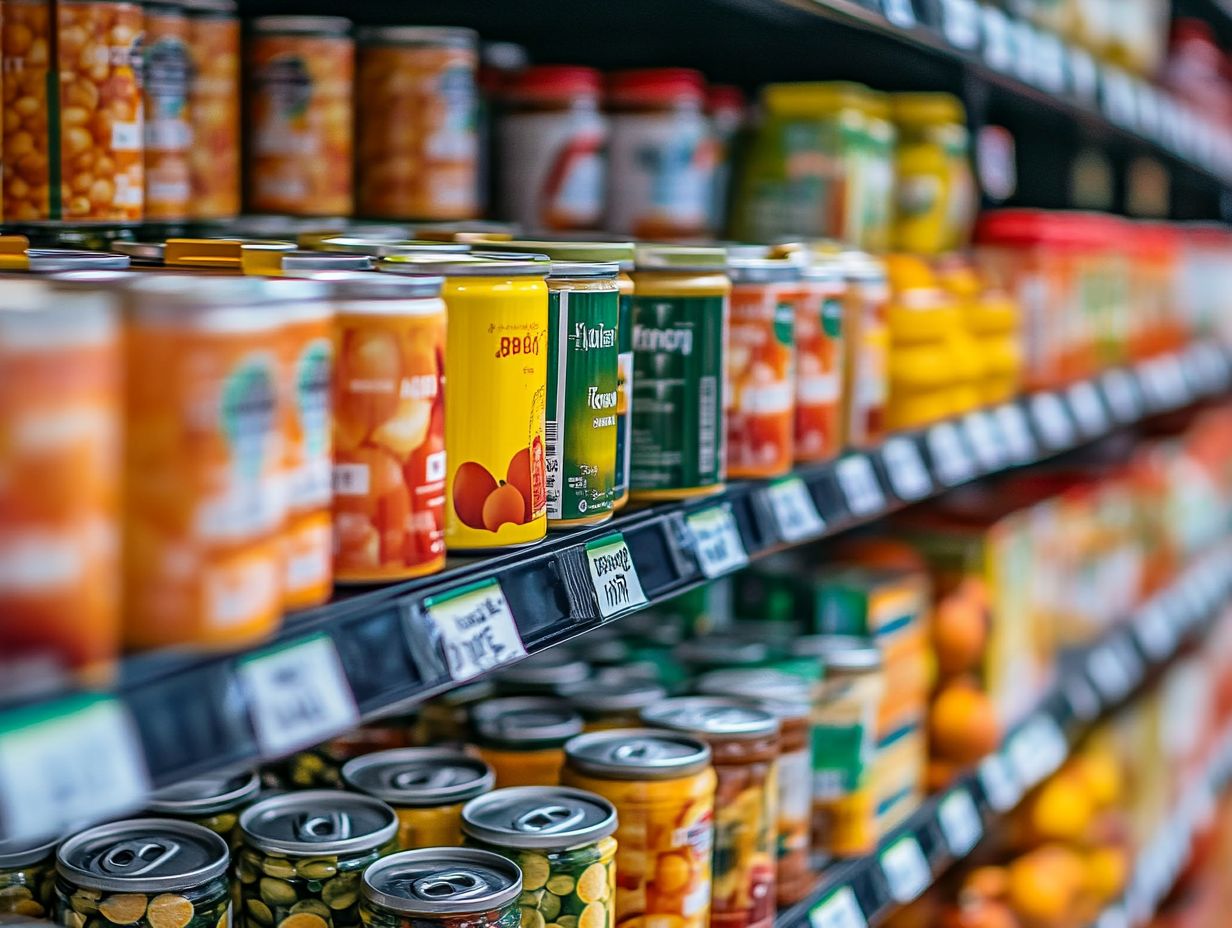
Canned goods offer a fascinating range of shelf lives; for instance, canned vegetables generally last between 2 to 5 years, while canned meats and soups can stretch from 3 to 5 years. This makes them outstanding staples for your pantry, particularly in case of emergencies.
Grasping these timeframes is essential for your meal planning. It allows you to make the most of your supplies before they hit their expiration dates. High-quality canned products not only preserve their nutritional value longer but also elevate the flavor, ensuring a superior dining experience.
When selecting these items, it s wise to seek out brands that emphasize quality ingredients and effective sealing methods. This choice can significantly impact both taste and safety.
By maintaining a well-stocked pantry filled with a variety of canned goods, you ll find it much easier to whip up balanced meals, even when life throws you a curveball.
Start checking your pantry today to ensure your canned goods are fresh and safe!
How to Properly Store Canned Goods
Properly storing canned goods is crucial for preserving their quality and extending their shelf life. Keep them in a cool, dry area and stay clear of direct sunlight and humidity.
This approach helps you manage your pantry better for health.
Tips for Maximizing Shelf Life
To maximize the shelf life of your canned goods, adhere to proper tips for storing food. Seal opened cans and utilize the right cooking tools to ensure safe consumption.
By grasping the importance of airtight sealing, you can effectively prevent exposure to bacteria and moisture, which can lead to spoilage. Avoid cross-contamination by using clean utensils when accessing the can’s contents. Knowing food risks tied to improper storage saves you time and money and enhances your food safety practices.
Regularly check expiration dates and store cans in a cool, dry place to extend their usability significantly. Together, these steps contribute to a more health-conscious approach to pantry management.
Signs of Spoiled Canned Goods
Wondering how to tell if your canned goods are still good? Identifying the signs of spoiled canned goods is essential for ensuring food safety. Look for indicators like bulging cans, unusual odors, and any changes in texture.
These could signify spoilage or contamination, including the serious risk of botulism, a serious illness caused by spoiled canned food. Your awareness protects your health and enhances your overall culinary experience.
Identifying and Handling Spoilage
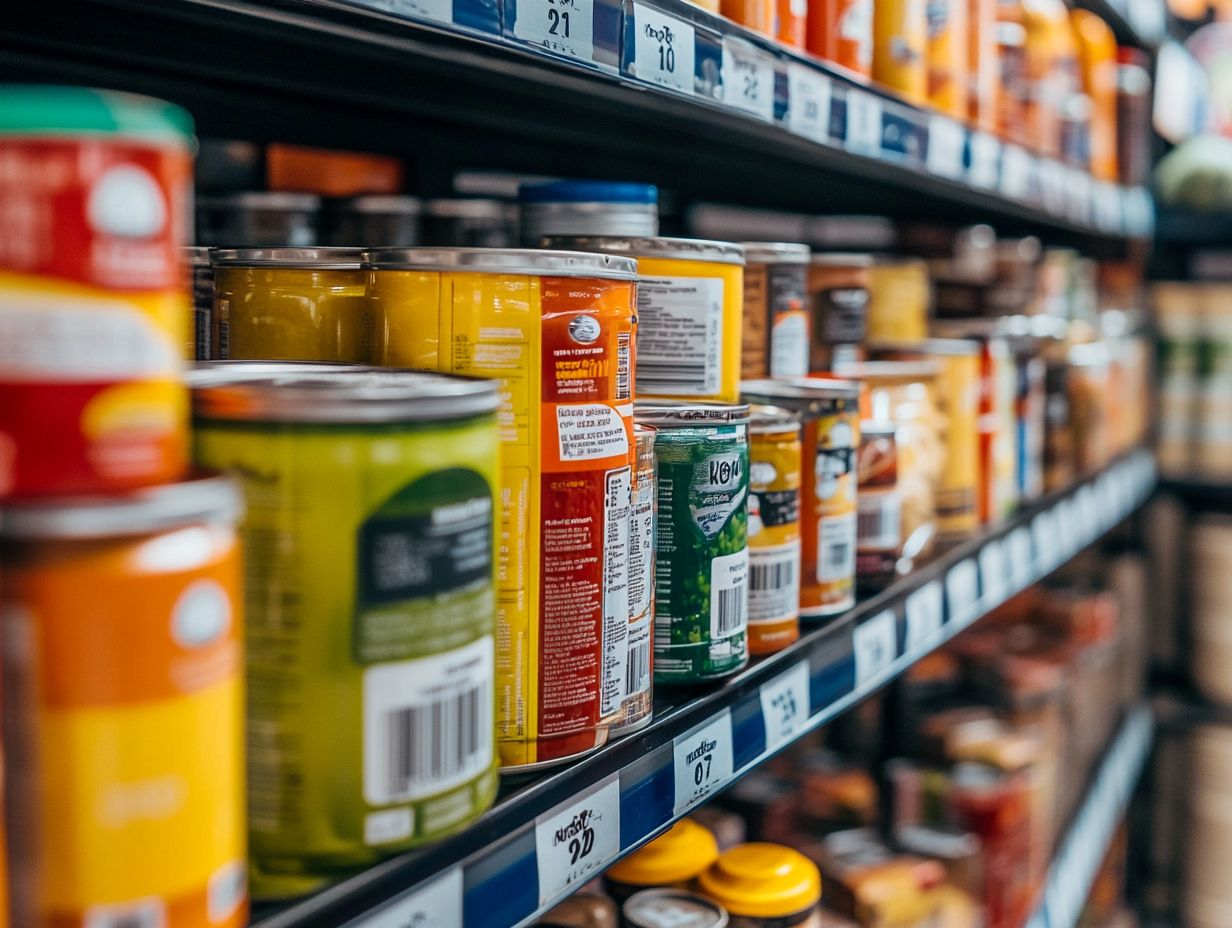
Understanding how to identify and manage spoilage is crucial for minimizing food safety risks. Recognize signs of spoilage like bulging lids, leaks, or unusual odors to significantly reduce health hazards.
If you suspect spoilage, discard the product immediately and resist the urge to open the can, as doing so could release harmful bacteria.
Adopt safe handling practices, such as storing canned goods in a cool, dry place and regularly checking expiration dates.
Knowing how to store and check canned goods is crucial. Encouraging awareness about proper storage and inspection methods will further safeguard you against foodborne illnesses. Stay aware and keep your kitchen safe by checking your canned goods regularly!
Extending Shelf Life of Canned Goods
Want to make your canned goods last longer? Here s how to do it! To extend the shelf life of your canned goods, employ effective preservation methods. This includes proper storage techniques and cooking practices that enhance health benefits and maintain quality.
By doing so, you ensure that your pantry remains stocked with high-quality, nutritious options for an extended period.
Methods for Prolonging Shelf Life
Prolonging the shelf life of canned products is within your grasp, thanks to various preservation methods. Utilizing high-quality food packaging that keeps moisture and contaminants at bay is essential for ensuring safe consumption.
Store canned goods in cool, dark places, away from direct sunlight and temperature fluctuations. Regularly inspect your cans for dents or rust, as any damage can compromise the integrity of the seals.
Emphasizing consumer education around these practices enhances food safety and helps reduce food waste. By learning to read expiration dates and spot spoilage, you can make better choices for your health.
Frequently Asked Questions
What is the Shelf Life of Canned Goods?
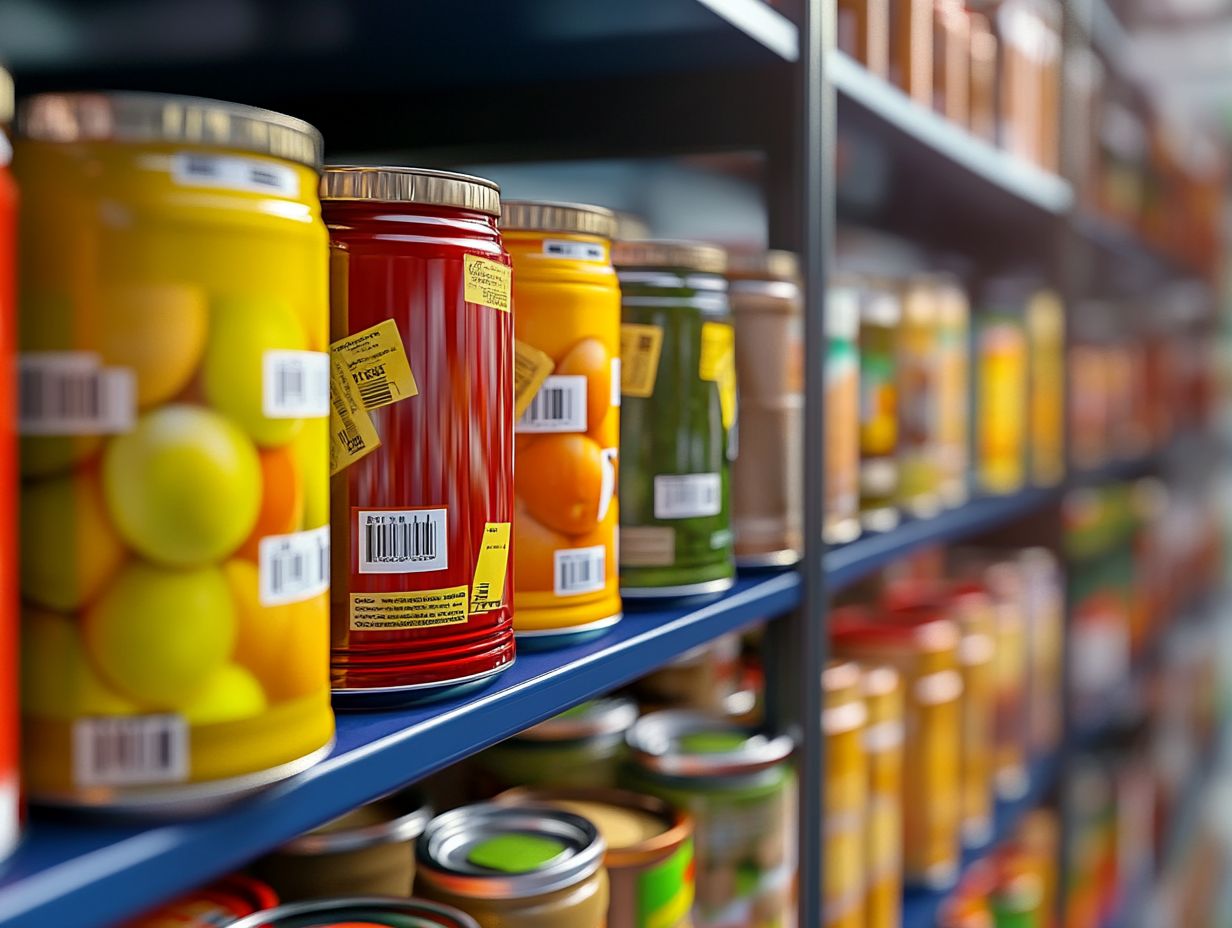
The shelf life of canned goods varies depending on the type of food and storage conditions.
How long can canned goods last?
Did you know that canned goods can last for 1-2 extra years beyond the printed date? This depends on the type of food and how you store them.
Do canned goods ever expire?
Yes, canned goods can expire. Proper storage is key, as damaged or bulging cans can lead to spoilage.
What factors affect the shelf life of canned goods?
The type of food and storage temperature play significant roles. The can’s condition also matters.
How can I extend the shelf life of canned goods?
Store them in a cool, dry place away from direct sunlight. Always check for any signs of damage before consuming it’s crucial for your health!
What are some signs that canned goods have spoiled?
Watch out for foul odors and unusual appearances. Bulging or dented cans are clear warning signs, so be careful!
